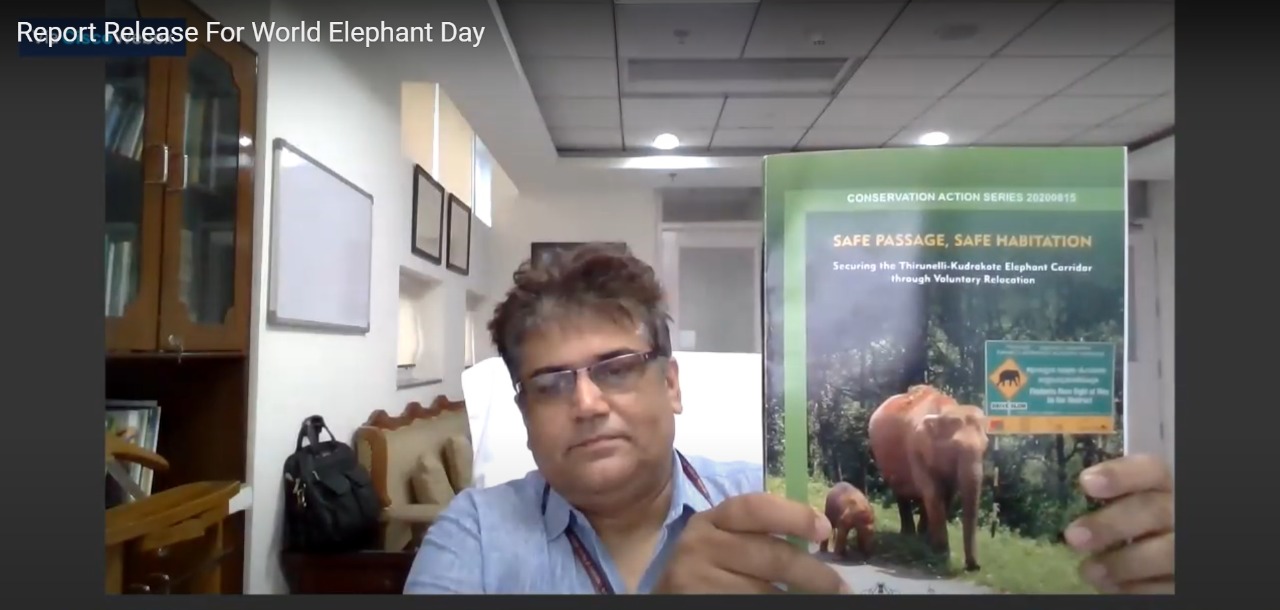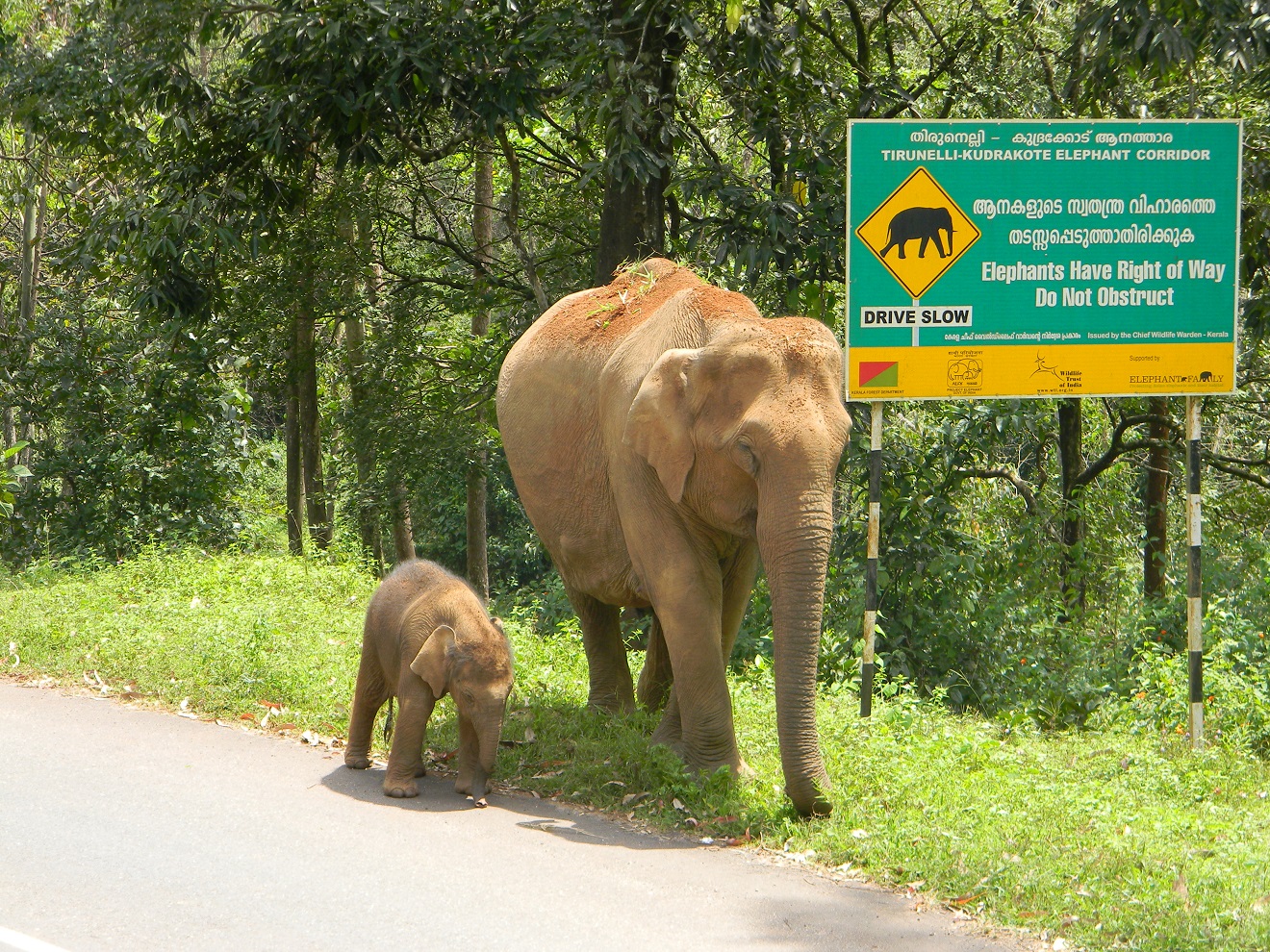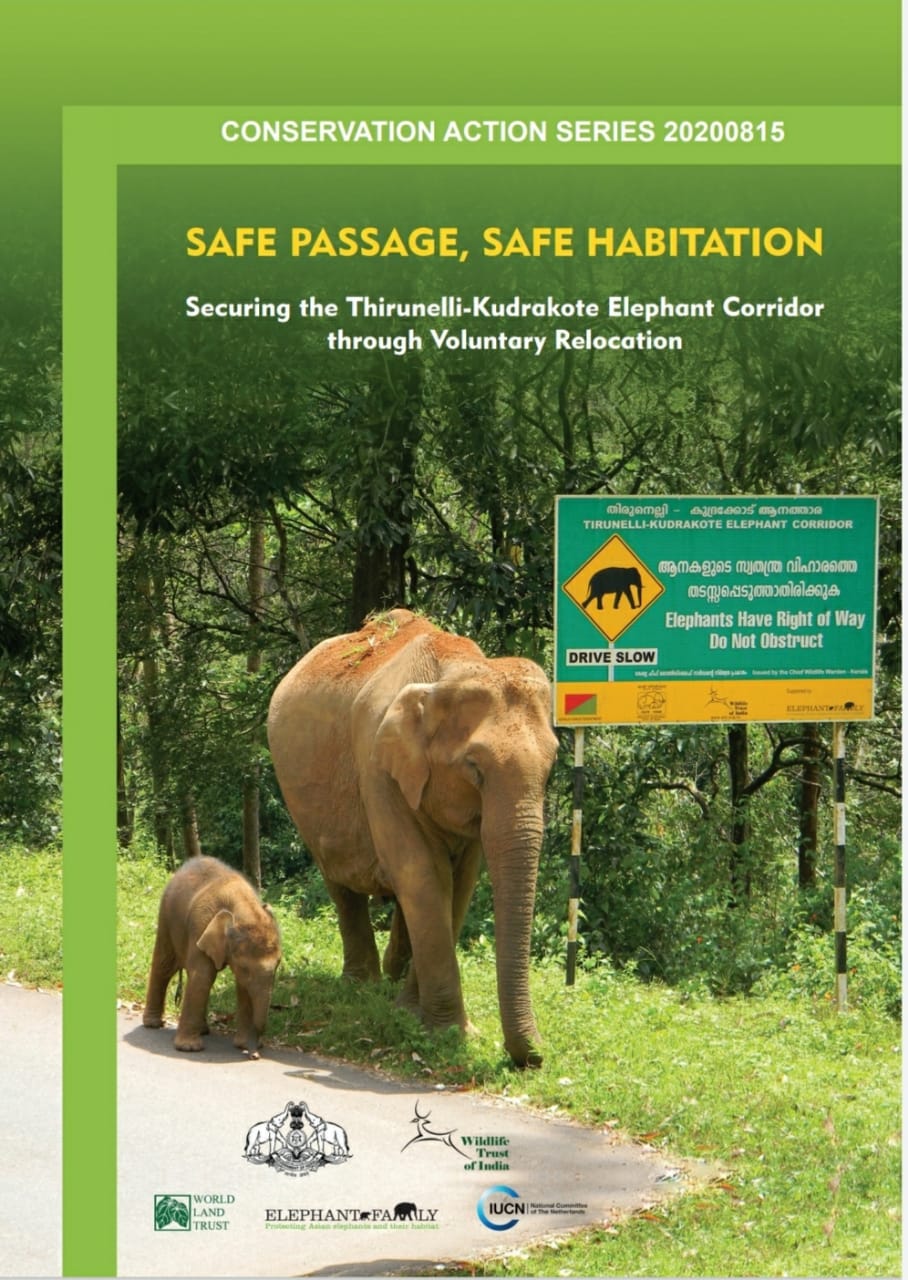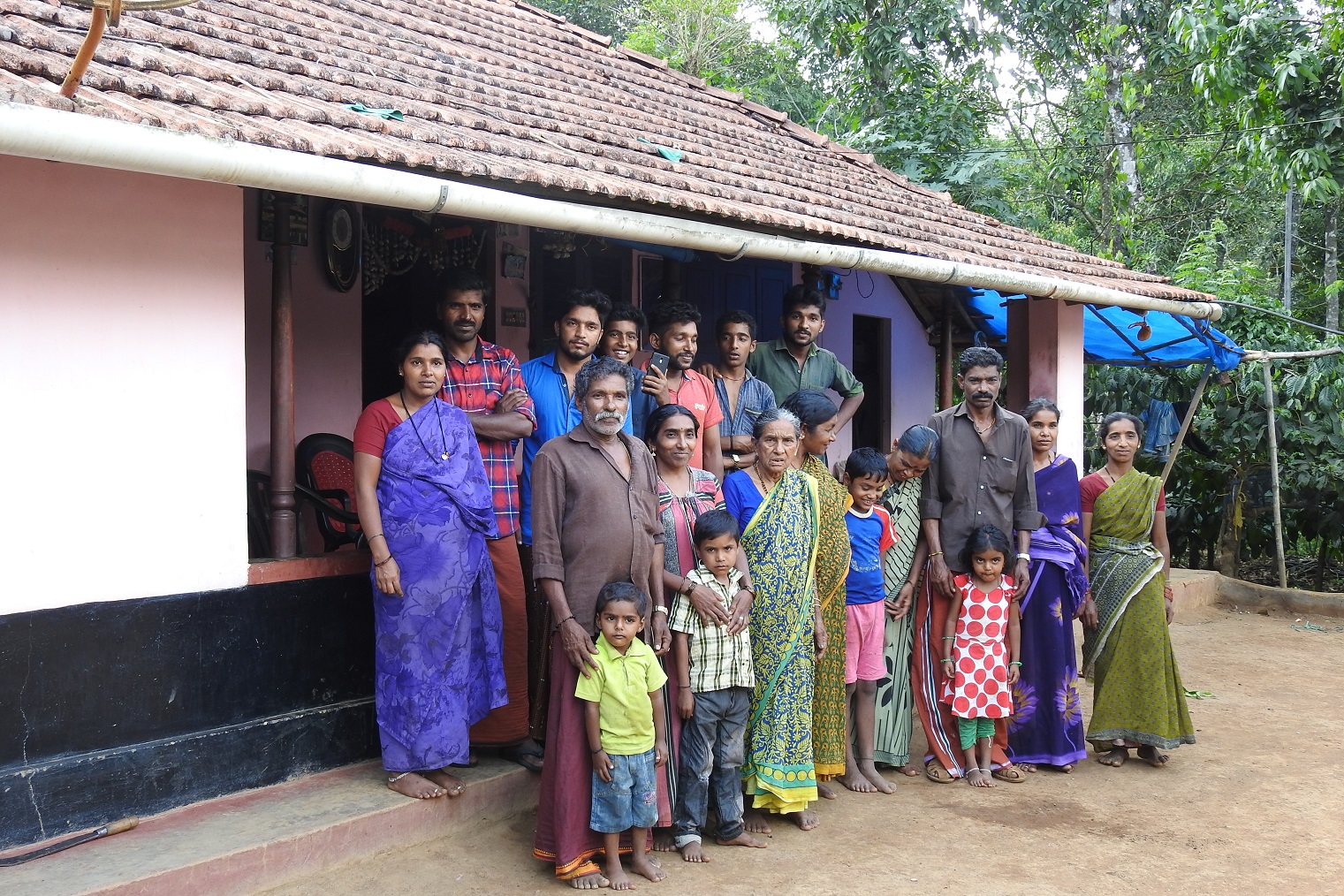Kochi, Trivandrum, New Delhi, 11 August 2020:
On the eve of World Elephant Day, Wildlife Trust of India released their Conservation Action Report on securing the Thirunelli – Kudrakote elephant corridor in an online event graced by Chief Guests Shri Soumitra Dasgupta (IFS), Addl. DG (Wildlife), Ministry of Environment, Forest and Climate Change (MoEFCC), and Shri PK Kesavan (IFS), PCCF and Head of Forest Force, Kerala Forest Department and senior government officials Shri Noyal Thomas (IFS), IG – Project Elephant, MoEFCC and Shri Surendra Kumar (IFS), PCCF (Wildlife) and Chief Wildlife Warden, Kerala Forest Department.

ADG(WL) holding up the report during the release event
The online event attracted attendees from states across the Indian sub-continent, US, UK, the Netherlands and Japan.
“I would like to congratulate WTI and all other partners who were involved in this very successful initiative. I am given to understand that this is probably the first such experiment, the first in the state, the first in the country” mentioned Shri P K Kesavan addressing the online audience which show wholesome participation from across the country and across the globe.
“We will leave no stone unturned in elephant conservation, but we have to ensure that elephant conservation is in sync with human existence and we will also try to find out a way so that a safe, secure and a symbiotic future is assured for both elephants and humankind” added Shri Soumitra Dasgupta

Elephant & calf at Thirunelli Kudrakote elephant corridor, Pic Credit @Ramith/WTI
The report release was followed by a panel discussion moderated by Vivek Menon, Founder and ED, WTI and also the Chair of IUCN SSC Asian Elephant Species Specialist Group. Strategies to secure elephant corridors in India were discussed with Ruth Ganesh, Principal Trustee, Elephant Family, Dr. Jonathan Barnard, CEO, World Land Trust, Marc Hoogeslag, Coordinator – Land Acquisition Fund, IUCN Netherlands who have been WTI’s long term partners in securing this elephant corridor in India.
“This has been our first project outside Latin America, we have had a good experience in this project and have since then worked in 15 other projects in Asia. This was the first project we funded which involved voluntary relocation. This project showed that even the purchase of a small land parcel can be very effective if done meticulously by a renowned NGO (WTI) which works positively with the local communities and has given us the confidence to replicate this model in Tanzania and Madagascar. Being involved in this project was very important to our programme” summarized Marc Hoogeslag during the panel discussion of the IUCN, Netherlands experience in this moderated discussion.

Report Cover Page
“The south Indian population of Asian elephants is about 14000 and the Thirunelli – Kudrakote Elephant corridor while connecting the Brahmagiri Wildlife Sanctuary, Karnataka with the Wayanad Wildlife Sanctuary, Kerala connects a much larger wildlife habitat extending from Bannerghata, Karnataka to the Brahmagiri – Nilgiri eastern ghats” elucidated Mr. Vivek Menon during the panel discussion.
WTI’s data shows that pre-relocation of these families, 100% of the corridor resident families faced regular conflicts with wildlife (elephant, wild pig, deer and bonnet macaque). Over 90% of the relocated families agreed that the new locations were largely free from wild animal encounters and attacks and had better access to roads, schools, hospitals and ancillary facilities.
“Wayanad is a complex landscape, the aspirations of the local community, the high densities of human population all have to be factored in such initiatives, even though the land extent is small this particular is very important for elephant conservation. This is one of the 27 critical corridors identified by the High Level Task Force in 2010, WTI’s experience and expertise will definitely be required for further consolidation of critical elephant corridors in this habitat” added Shri Noyal Thomas with his vast experience in Kerala, his home cadre.

Annappara (relocation site for Thirulakunnu), Pic Credit @Pranav Capila
Ruth Ganesh summarizing her experience of engagement over 12 years mentioned “My lasting impression was those of store cupboards full of green pepper corns and bananas and people whom we spent time with were really happy. These were families of people who were sensitively relocated. This wasn’t a ‘cookie cutter approach’, there were different sized houses to accommodate different families. It was really satisfying to see the happiness of these families with access to buses, roads and drinking water and unconstrained in their daily movement due to wildlife and to see that our initial test project has worked”
“We hear a lot in conservation about negativities, this project shows that you can create win-wins for both wildlife and for people, congratulations to everyone for having had the vision and the tenacity and perseverance to see this through” summarized Jonathan Barnard.
This report is a benchmark study on successful land acquisition through voluntary relocation of people for securing right of passage for the Asian elephant and has potential to be replicated across other landscapes favouring this strategy and is a must read for researchers and community workers working with fringe communities sharing habitat with wildlife.
Click here for downloading a copy of the report : https://www.wti.org.in/wp-content/uploads/2020/08/Safe-Passage-Safe-Habitation_WTI_Aug-2020.pdf
All our publications are open access, check out our other publications and reports here : https://www.wti.org.in/resource-centre/